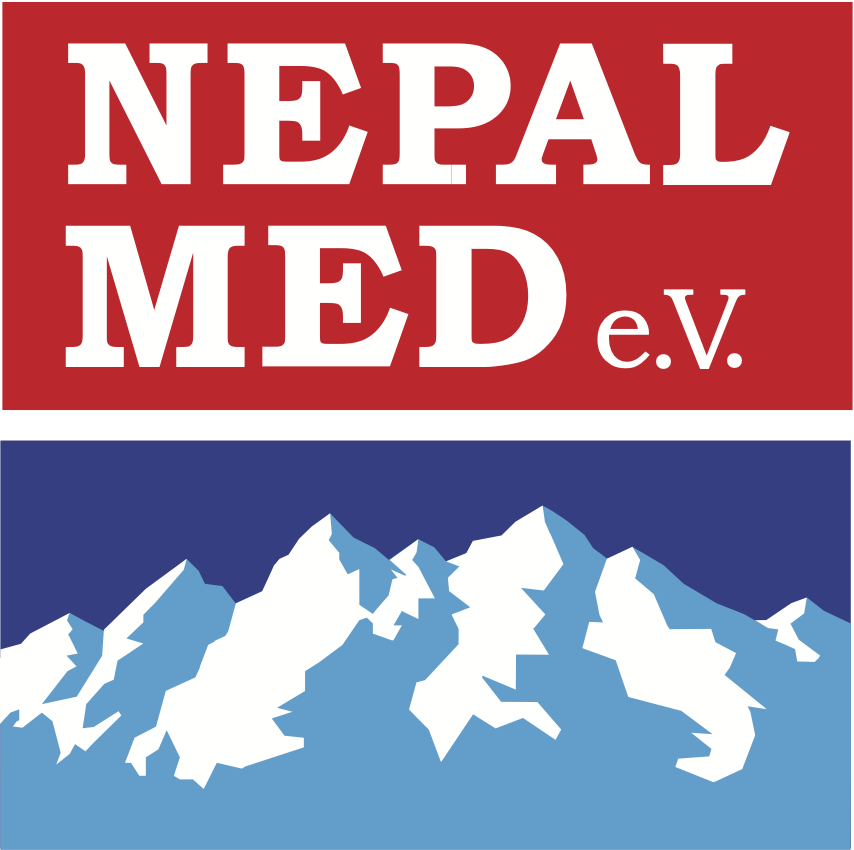Advice for a trip to Nepal
In order to share with you the many years of experience we acquired through numerous stays on site, here we compiled useful information and links on the topic of Nepal.
Regional information
Detailed information about the country Nepal can be found under the links: www.deutsch-nepal.de and www.nepalnews.com . Those interested in art should take a look at www.nepalnow.blog by Beata Wiggen .
Accommodation
Under www.universalvolunteers.com you will find very recommendable accommodation with locals in the capital Kathmandu. Mr. KP (pronounced Kaypee) Maskey speaks very good German and English and provides excellent catering, a language course and much more: Family KP Maskey Baddisbutly, Postbox No. 3037, Kathmandu, Nepal, Tel .: 00977-1-470418, Fax: 00977- 1-4744627, Email: oneworld33 (at) ntc.net.np. The Maskey family’s house is located in the Ratopul district (Ratopul means Red Bridge, which every local taxi driver understands and knows as a location), near Pashupatinath near the airport.
There are many hotels of every category in the center and in the tourist area of Thamel. In Thamel, there are also all kinds of shops, travel agencies, internet cafes, bookshops and nice breakfast cafes that are well worth a visit.
For a visit to the Chitwan National Park, which is about 170 km south of the capital Kathmandu on the border with India, the hotel “Parkside” in Bhachhauli-Sauraha can be recommended. This is supported by a friendly German organization. Contact via email: kintzl (at) hotmail.com or by phone on: 0621-302116. The hostel warden on site, Sher Bahadur Pariyar, is very helpful and speaks good German and English. Contact via email: shernepal (at) yahoo.com or by phone under the phone number: 00977-56-560431 or -580159.
Eating and drinking
In Kathmandu, there is European quality food in the tourist district of Thamel. Local, Nepalese food and drinks are available on every corner. These are often very tasty and highly recommended. It is a good idea to eat where the food is freshly prepared and where the locals eat themselves. Furthermore, one should be careful not to consume any raw salads, fruits and vegetables. Peel or cook these foods before consuming them. Water should definitely be boiled or treated with Romin Keimfrei (5 drops per two liters) or Micropur before it is drunk (including the toothbrush water). The two remedies are available in any well-stocked travel store or pharmacy. The plastic water bottles that can be bought everywhere pose a significant environmental problem, as they often end up in nature as waste. Please pay attention to the preservation of the environment.
Vaccinations
Nepalmed recommends boosting tetanus and other publicly recommended vaccinations such as diphtheria, whooping cough, and polio. Detailed information: Association for vaccination education in Germany
Vaccinations against hepatitis A and B and typhus (injection) are also important. Vaccination against rabies should be considered, as the disease is 100% fatal. Malaria prophylaxis is no longer recommended when traveling to the Terai (moist, fertile lowlands south of the Himalayan mountains in Nepal, India & Bhutan) and to India according to the WHO since 2004. Emergency therapy with the drug mefloquine (active ingredient: Lariam®; hallucinations as a side effect can occur in 3% of people, so please test a tablet beforehand) or alternatively with the drug Malarone® should be well considered. The general malaria 7-day rule applies: if the journey to a hazardous area only lasts 7 days, prophylaxis should not be used, as the malaria incubation period is 7 days. But please inform yourself about the symptoms of malaria. Visiting a pharmacy in Germany with travel advice before starting the trip is recommended. India is the motherland of cholera. The oral vaccination against cholera also protects against the “usual” traveler’s diarrhea caused by ETEC! 2 doses orally (well tolerated) currently cost around 45.00 euros. The vaccine against cholera is not approved in Germany, but is administered in tropical vaccination centers.
These are vaccination tips, they are not a substitute for advice from a tropical medicine specialist.
Mosquito repellent
Many cases of malaria, as well as Japanese encephalitis, chikungunya, and dengue fever are reported. Each of these infectious diseases is transmitted by mosquitoes. Travelers to the Terai should therefore carefully protect themselves against mosquito bites on site.
Common diseases
Diarrhea will probably strike everyone once on their trip to this region. It is therefore important to ensure good and, above all, always sufficient fluid intake. If diarrhea develops, eat banana porridge as a natural remedy and drink plenty of tea with sugar. The intake of the bacteria Saccharomyces boulardi (e.g. preparation Perenterol forte) in the following dosage: As prophylaxis you can take the bacteria one week before entry with 1 capsule once. If diarrhea occurs, 1 capsule 2 times over a period of 5-7 days brings relief. If you have more persistent diarrhea attacks, you should see a doctor.
Altitude medicine
Comprehensive information about altitude acclimatization and altitude sickness is summarized in a current article and is recommended for everyone who is planning to spend some time at altitudes above 2500 m and would like to get to know competent altitude medical advice. link (German) .
Working time models
If you want to go abroad for a limited time in order to provide development aid and at the same time continue to be employed in Germany, the options offered by the company Hire-a-doctor could be of interest.



